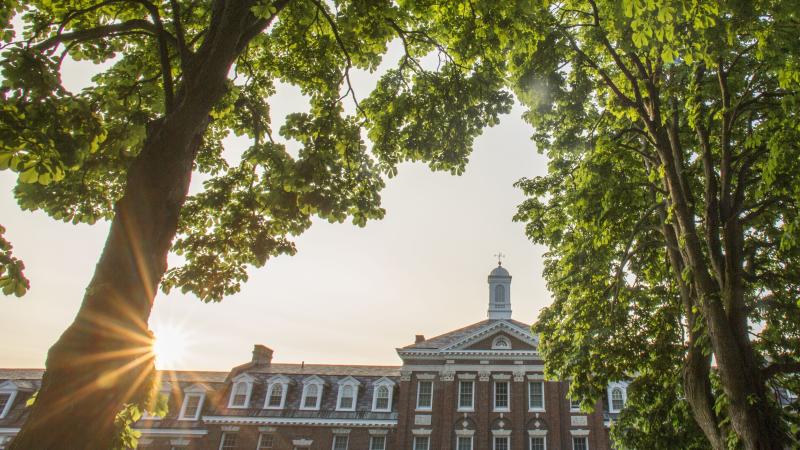Many courses offered this fall will address challenges related to the ongoing pandemic
August 31, 2020

As classes begin at Rensselaer Polytechnic Institute this week, not only has the COVID-19 pandemic changed the format of some courses, it has also assumed a prominent focus in the content of many courses throughout the university.
In keeping with the Institute mission to prepare the next generation of world-changing leaders, students will learn how a range of disciplines might respond to the most pressing global health challenge of the modern era.
“It is important that coursework covers material that students can relate to, not just for their chosen major, but also in general,” said Juergen Hahn, the head of the Department of Biomedical Engineering at Rensselaer. “Given that all students are affected by the actions taken in response to COVID-19, it seemed only natural to show them an example how they can use the material learned in this course to better understand the effects of the epidemic.”
Hahn is one of several professors who will incorporate COVID-19-related topics into his curriculum this fall. For example, he has developed a model of COVID-19 transmission in the United States for his course in modeling biomedical systems.
Inventor’s Studio courses within the School of Engineering will encourage students to design solutions to pandemic-related problems, an approach that produced meaningful results in the spring semester. During the early months of the pandemic, undergraduates designed a splitter that would allow ventilators to be shared safely among multiple patients during a shortage. They also developed a method of regenerative tissue growth to build an optimized lung bypass system for COVID-19 patients whose tissue has been damaged by coughing. Students received provisional patents for both designs.
“We asked the students of Inventor’s Studio to think about the challenges faced by COVID-19 patients, how they would like to contribute to solutions for this pandemic, and alleviate the issues that patients are facing,” said Asish Ghosh, a professor of practice in mechanical, aerospace, and nuclear engineering.
COVID-19 research will be used for a number of projects in Data Analytics Research, a math class offered as part of the Institute’s requirement for data education. In the course, held in the Data INCITE Laboratory, students may explore social determinants of COVID-19 infection and mortality through the COVIDMinder app, which was built by researchers at Rensselaer. Or they might use data about COVID-19 transmission to develop models that inform policymakers.
Students throughout the School of Humanities, Arts, and Social Sciences (HASS) will examine the influence of COVID-19 on society and, in some classes, consider its intersection with social justice issues. Depending on the course, students might examine the confluence of antiracist movements and racial disparities exposed by the pandemic, or they might explore the use of artificial intelligence to make more logical decisions during times of crisis.
Within the Lally School of Management, students will study the organizational consequences of COVID-19 by examining companies that have been dramatically impacted by the virus and consumer behavior as a result of the pandemic.
For instance, Gaurav Jain, an assistant professor of marketing, will use the pandemic as an example of how corporate communications can and should be more nimble.
“The pandemic has made people more prevention-focused,” Jain said. “Marketing messages need to be in line with mindset.”
Students in the School of Architecture will be examining the configuration of critical infrastructure in a future marked by the possibility of more frequent pandemics, the rapid deployment of prefabricated housing in times of crisis, and post-pandemic work environments, among other areas.
Fleet Hower, a lecturer in the School of Architecture with expertise in computational methodologies, will be teaching an urban data and GIS course that will look at pandemic-related urban data, changes in people’s behaviors, and responses to possible metropolitan interventions.
By incorporating innovative teaching methods that enable students throughout the Institute to consider the problems posed by the COVID-19 pandemic from a range of perspectives and disciplines, Rensselaer will be creating a cohort of problem-solvers prepared to thrive in a changing world. This campus-wide effort highlights the power of the New Polytechnic, the interdisciplinary model that drives teaching and research at Rensselaer.
“Rensselaer faculty lead by example when it comes to preparing students to address global challenges,” said Prabhat Hajela, the provost of Rensselaer. “By design, our curriculum emphasizes real-world applications and meaningful engagement with the outside world. The global pandemic has presented new and unique challenges. Addressing them in our instruction and research will help prepare the next generation of talent that will be on the frontline of developing solutions and leading new discoveries.”